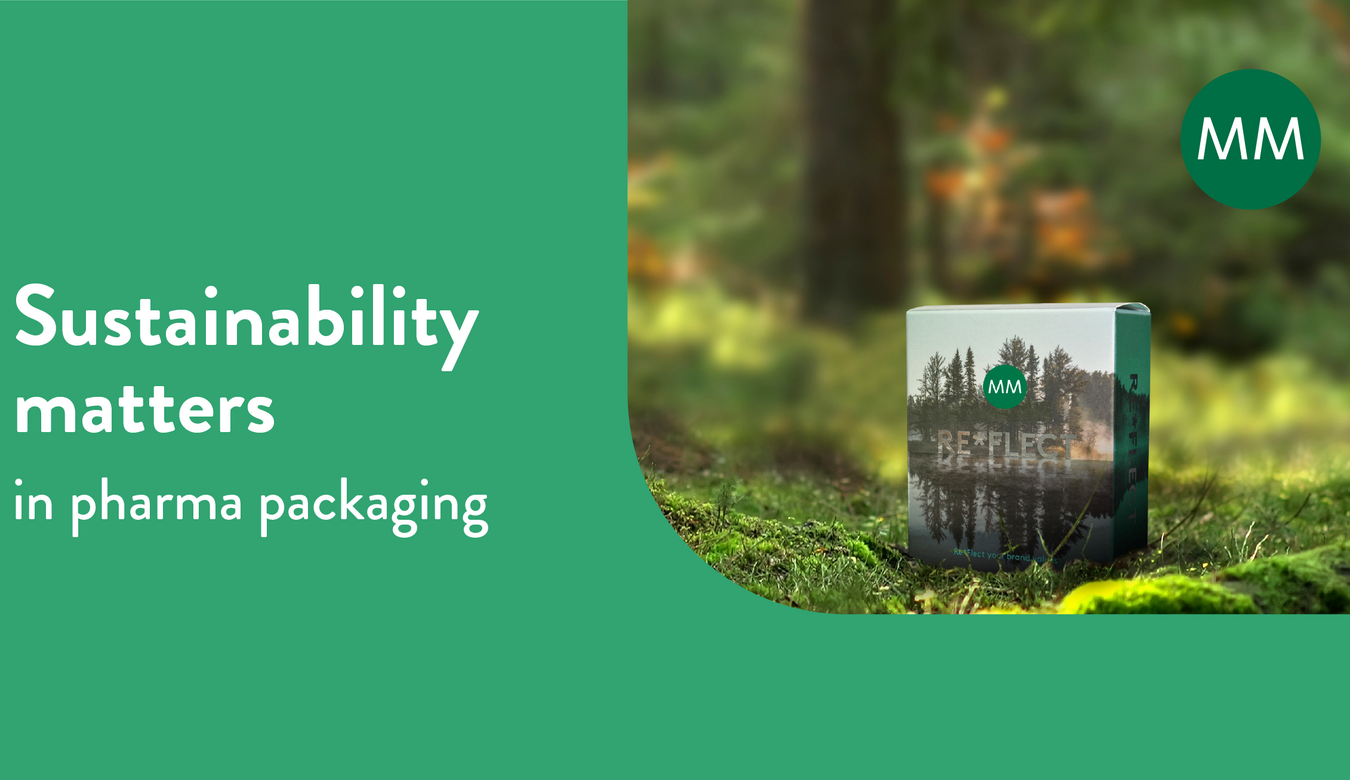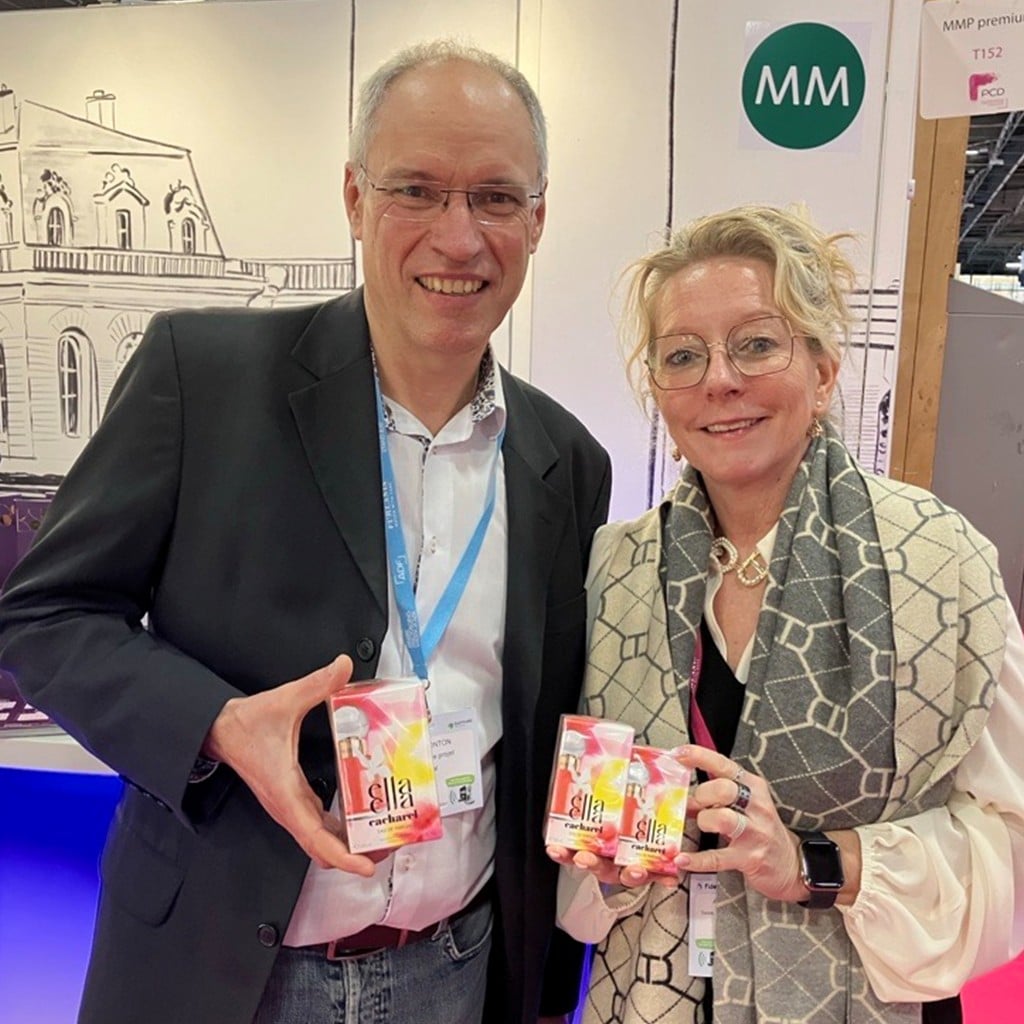Sustainability matters in pharma packaging
In an era where the principle of sustainability has become an increasingly critical concern for consumers and businesses alike, the pharmaceutical industry cannot afford to ignore the call for more responsible practices in packaging design and development.

Far from being separate from more traditional consumer product categories, as the demand for more sustainable packaging solutions continues to grow, it is crucial that pharmaceutical companies take a proactive approach to incorporating intelligent design choices that minimise environmental impact.
Research, such as the Global Sustainability Study[1], highlights the changing mindset of consumers when making purchasing decisions. An overwhelming majority, 66% now consider sustainability one of the main drivers in their choices, with 75% stating that environmental sustainability is as, or even more important to them, than it was in 2021.
The message for pharmaceutical businesses is clear. As the demand for sustainably designed products continues to rise, the pharma industry must respond with solutions that align with these changing expectations, including OTC products.
MM Packaging believes that creating a more environmentally aware pharma sector starts with substrate. With public pressure to reduce the use of plastic in all aspects of packaging, cartonboard stands out as the obvious alternative. Made from renewable fibres and offering lightweight, durable performance, cartonboard is usually simpler to recycle for consumers, where certain plastics cannot effectively be recovered.
Contrary to a persistent narrative about the durability of cartonboard, research from the Institute of Bioproducts and Paper Technology at Graz University of Technology has debunked the myth that paper fibres can only be recycled a very limited number of times. Cartonboard has been proven to withstand up to 25 recycling cycles with minimal reduction in strength properties or drainage capacity. This discovery opens up new possibilities for cartonboard as a circularity-focused option for pharmaceutical packaging, capable of serving supply chains for multiple cycles.
As a leading producer of secondary packaging for the pharmaceutical sector, at MM Packaging cartonboard and paper are core to our business. Through our relationship with MM Group’s dedicated paper and board division, MM Board & Paper, we have extensive expertise of paperboard’s technical characteristics, enabling us to produce high-performance packaging that streamlines the supply chain without compromising on sustainability.
In cases where cartonboard may not be suitable, manufacturers should explore other materials that can support the replacement of plastics and non-recyclable materials as the primary component in packaging. Thankfully, the industry now offers a range of alternatives, including products replacing plastic materials to substitute Metpol for metallised cartons. For example, MM Packaging’s Re*flect cartons provide an alternative to metpol that maintains metpol’s traditional visual characteristics while completely removing plastics from the equation. With our Re*flect technology, at MM Packaging we help companies to show their commitment to the environment and demonstrate their brand values without complicating their packaging.
Additionally, careful consideration should be given to the impact of labels on recyclability, with wash-off labels proving to be a more recycling-friendly option.
But as every brand knows, sustainability in packaging design extends beyond purely material choice, and we believe in minimising the carbon footprint at every stage of the packaging life cycle. By reducing the size and weight of packaging during the design process, we contribute to a more resource-conscious supply chain and offer significant logistical advantages.
Close collaboration with our customers is also a key aspect in supporting business-wide sustainability strategies. We provide technical and material advice to help our partners understand the benefits and cost implications of using alternative materials. This holistic development approach considers the entire life cycle of the packaging and encourages a circular economy where materials are reused and recycled, reducing overall waste.
Combining global reach with roots in local markets, we operate 28 dedicated pharmaceutical packaging production sites, collaborating with pharmaceutical businesses seeking a sustainably minded secondary packaging partner. The company’s local teams work hand in hand with designers to ensure that packaging is designed with the lowest possible impact on the natural world.
By taking a proactive approach to responsible design, we support pharmaceutical companies align their packaging with sustainable practices, meeting the increasing demands of environmentally conscious consumers.
Furthermore, our team offers an extensive range of substrates that combine circularity with performance, including diverse paper and cardboard grades. These materials include options certified under comprehensive forest management schemes, as well as those made from recycled materials. By providing a diverse selection of materials, we are enabling pharmaceutical companies to make environmentally responsible choices without compromising on secondary packaging quality or functionality.
As well as our strong commitments to responsible design and circularity in materials, our business is actively involved in sustainability projects at various locations around the globe. These projects focus on waste reduction, energy consumption, and minimising the ecological footprint of our operations. By implementing such initiatives, we showcase our dedication to environmental preservation, making our business an ideal partner for pharmaceutical companies seeking to align their supply chain with wider Environmental, Social and Governance (ESG) goals.
In addition, our business holds various certifications that underline our commitment to being the pharma industry’s premiere sustainability-focused secondary packaging supplier.
Certifications, such as FSC® (Forest Stewardship Council), PEFC™ (Programme for the Endorsement of Forest Certification), SFI (Sustainable Farming Incentive), and ISO Standards 14001, 50001, 9001, 20400 Sustainable Procurement, offer pharmaceutical companies the assurance that our business adheres to the highest sustainability and responsible supply chain practices.
In addition, MM Group is one of only ten businesses around the globe, out of 21,000 scored, to achieve a Triple A rating in transparency by the CDP (Carbon Disclosure Project). This makes MM Packaging the only packaging specialist in the pharmaceutical sector to achieve full A-grade climate disclosure ratings in the core areas of climate, forestry and water.
Reflecting changes seen in other markets, sustainability in pharmaceutical packaging has moved from being a choice to an imperative. To find success in a shifting market, businesses across the sector must embrace intelligent and low-impact packaging design choices, which we make simple.
By incorporating renewable materials like cartonboard, minimising the carbon footprint of operations and adopting technology-driven solutions, the pharmaceutical industry can align itself with the progress being made in other sectors and work towards a more robust future for all.
At MM Packaging, we are committed to supporting our partners in the pharmaceutical industry by applying our unique perspective to secondary packaging design. To learn more about our latest innovations and the extensive technical knowledge available to support your business, please visit www.mm-packaging.com
[1] https://www.simon-kucher.com/en/insights/2022-global-sustainability-study-growth-potential-environmental-change


